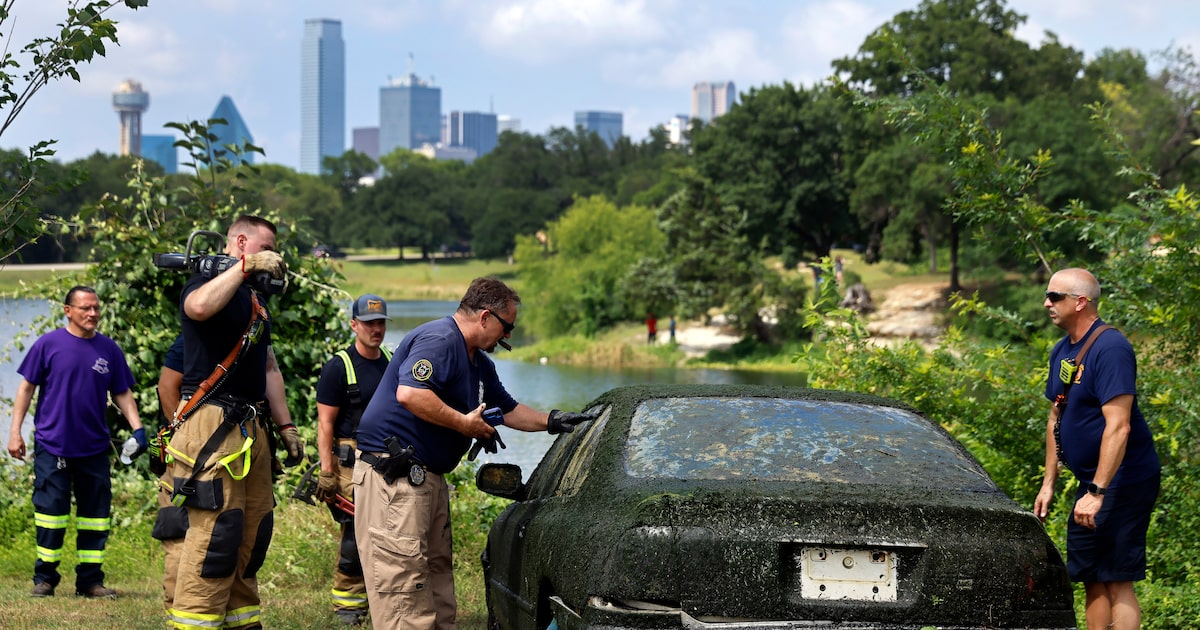Historic Lake Cliff Park, with its perfectly framed view of the Dallas skyline, attracts walkers, joggers, tennis and baseball players, youths with fishing rods and kids who love the rocket slide. The north Oak Cliff landmark is well-loved and well-used.
But “urban oasis” is only one of its identities. “Crime scene” is another. Earlier this summer, Dallas Police found and recovered nine vehicles from the lake’s murky waters. Police declined to say why they targeted Lake Cliff Park, only that the salvage operation was part of a new initiative.
Most of the cars had been reported stolen; one had been involved in a robbery and another in a criminal mischief incident. They were mired in silt and sediment, their internal fluids — gasoline, oil, antifreeze, brake fluid — leaking into the water for years.
That pollution is particularly problematic because of the lake’s third identity: “retention basin.” Most of the small bodies of water in local parks and neighborhoods exist partly to collect and hold stormwater runoff. None of the little lakes are natural; they are dug out or dammed or both.
Opinion
For example, springs do exist at another Oak Cliff park, Kidd Springs, and some springwater flows into its lake, but that’s not what keeps it full. Rain runoff does.
The problem with stormwater runoff is that it brings everything in the gutter along with it. The storm sewers in the popular Bishop Arts dining and shopping district drain to the pond in Lake Cliff Park. After a heavy rain, ducks and egrets navigate shallow waters cluttered with empty plastic bottles, fast-food containers, deflated balloons, chip bags and the occasional egg carton. The water ultimately flows to the Trinity River.
“The vast majority of trash in the lake is not coming from the park,” said Brett Johnson, conservation manager at the Dallas Park and Recreation Department. “Any trash that’s on the streets, that’s coming straight to the park. There is nothing filtering out the trash.”
For all the abuse it endures, Lake Cliff Park remains remarkably vibrant. A volunteer group tends the perennial gardens and crape myrtle bed near the pineapple fountain and pergola. The area around the park has grown more densely populated in recent years, as developers have built multistory apartment buildings on nearby streets.
The increased population may protect the lake from criminals looking for an isolated place to dump a stolen car. But it could make the trash problem worse. The moral of this story: If you love your local lake, don’t litter. Definitely don’t eat anything that comes out of it.
And, if you’re of a mind to steal a car, can we trouble you to ditch it elsewhere?
We welcome your thoughts in a letter to the editor. See the guidelines and submit your letter here.
If you have problems with the form, you can submit via email at letters@dallasnews.com
